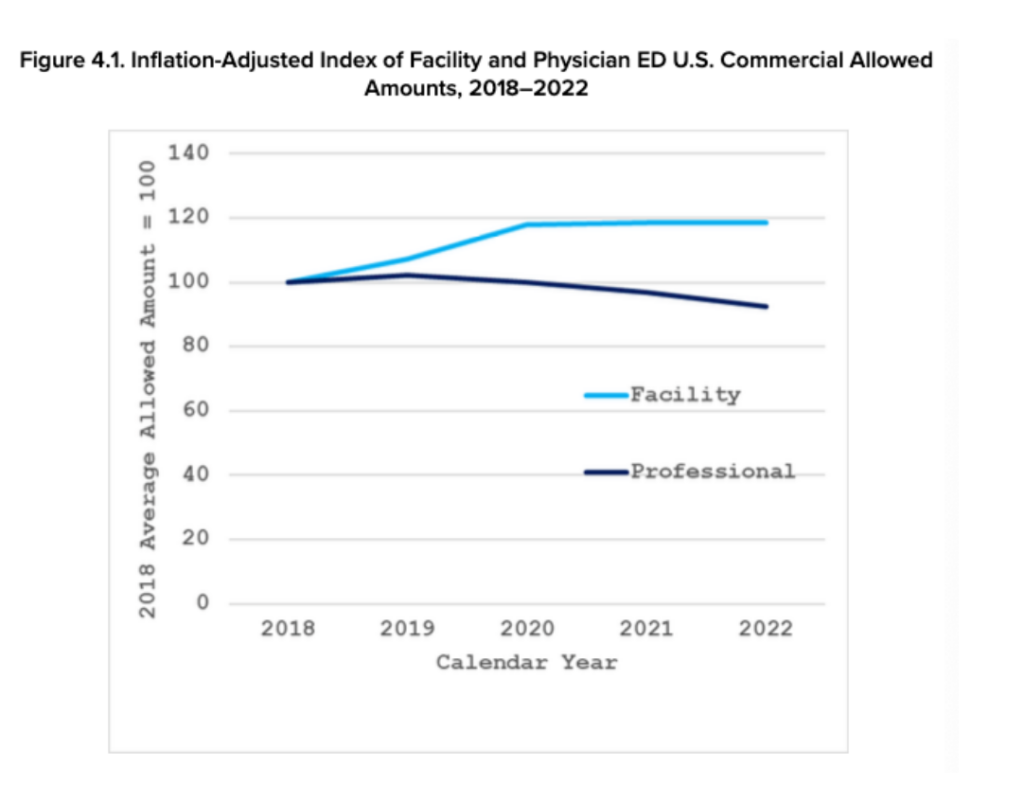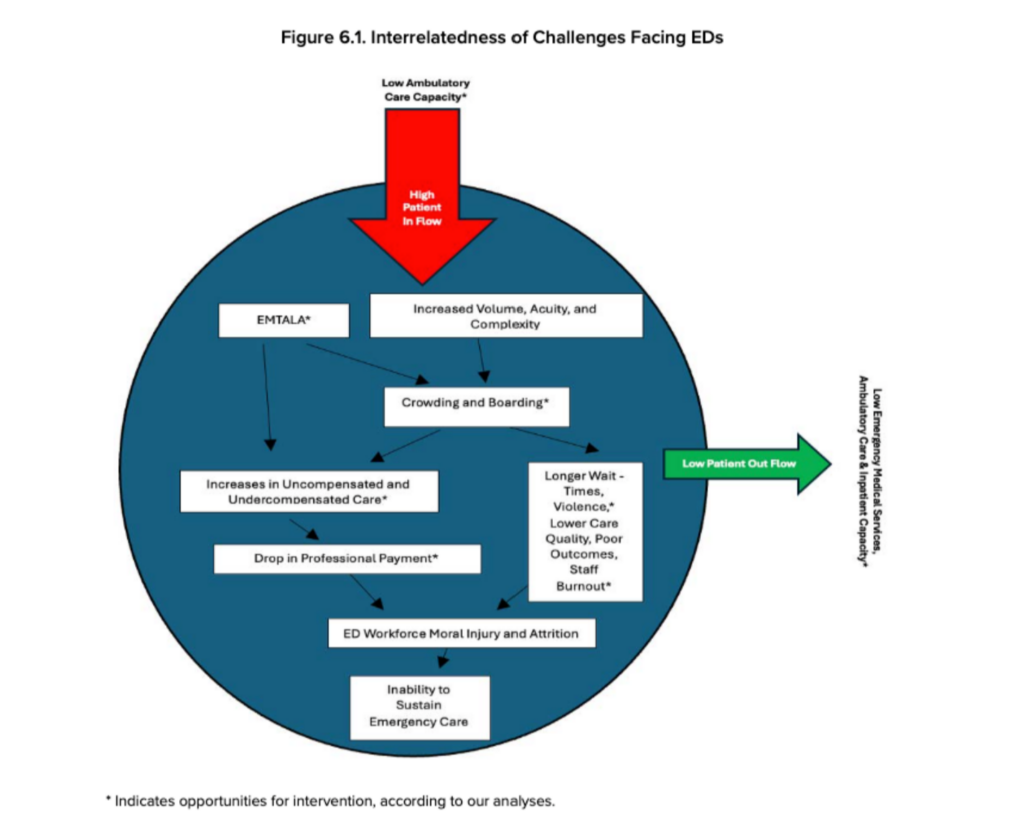This RAND Report was funded by the Emergency Medicine Policy Institute with the objectives of (1) assess the current value of emergency care, (2) evaluate the challenges to sustaining emergency care, (3) measure trends in emergency care payments, and (4) identify alternative funding strategies for emergency care.
We share brief highlights of the 167 page report.
Demographics:
- 30% of all ED visits were due to mental health conditions in 2020, up from 24% in 2016.
- 1% of ED visits were due to opioid drug use.
- 3% of ED visits were due to alcohol.
- < 1% of ED patients were homeless in 2020, up from 0.4% in 2016.
Emergency Payment:
- Facility Commercial allowed negotiated payment has increased for facilities and decreased for professionals (see graph below).
- ED physicians were paid 80% of what they were owed for services from 2018 to 2022 based on allowed amounts.
- Insurance payers regularly fall short of delivering full payment for the allowed amount that are due.
- Average inflation allowed of professional fees are falling and not all these amounts get paid.

Payment Recommendations:
- Recommendations for Sustaining Emergency Care Value includes EMTALA funding, city and local fund, health system resiliency, ED preparedness and bolster role as a critical national infrastructure.
- Recommendations for Mitigating Challenges include securing EMTALA expanded primary care capacity, financial incentives and penalties for ED boarding, improve hospital space utilization, enforce hospital anti-violence policies.
- Payment recommendations include Medicaid expansion in stages that have not adopted it, minimum ED physician professional fee as a percentage of facility fees, annual inflationary increases to the physician fee, require the insurance company not the hospital or doctors to collect copays, make EMTALA a funded mandate, require EMTALA screening exams regardless of final diagnosis, prohibit retrospective denials.

To view the full report, click here.
